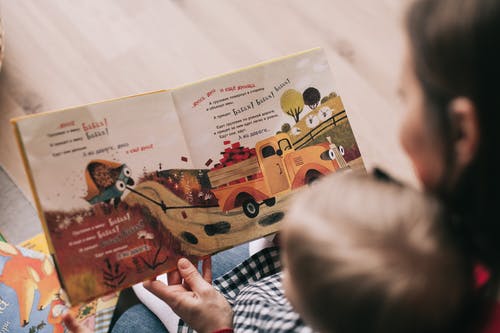Children grow every day – physically, emotionally and mentally. It’s easy to see their physical growth and we support that by making sure they get proper sleep, nutrition and exercise. Emotionally, we watch them go through various stages and teach them social norms and how to process feelings along with coping and stress reduction techniques. So how do we support and improve our child’s mental growth?
School is part of this process.
The school system is designed to impart knowledge, but how can we make sure our children can process all the information provided? Cognitive development involves how children process information to help them understand the world around them. Cognitive development includes the processes of evaluation, analysis, memory, comparison making, problem-solving and understanding complex concepts like cause and effect.
As parents and nannies, we do things every day to support the child in our care. We have conversations with the children and can use these opportunities to help them develop skills in the cognitive development processes.
Here are five ways to help your child grow.
- Children should be encouraged to ask questions when they don’t understand something. This is not the constant ‘why’ that is said to annoy, but serious questions that help them understand their world. Young children can come up with questions that range from simple to unanswerable. Why is it raining? What happens when the earth explodes? The topics are unlimited, but the parents and caregivers should encourage questions, get an understanding of what drove the question (a school assignment or something seen in a video) and answer the question as truthfully and completely as possible. Older children may come up with questions that stump you. Admit that you are not all-knowing and research the topic with the child to find a satisfactory answer. Always let children know that what interests them is important.
- Every parent and caregiver knows that reading to young children is vital to their mental development. If a child is just learning to read, pick books at or slightly above their reading level and read them together. The important thing to remember is to ask the child questions about the story. Let them retell you the story in their own words. Encourage them to ask questions if there are words or concepts they don’t understand. If children are already reading on their own, pick a book for the entire family to read. Have a weekly ‘book club’ meeting where you discuss the plot and characters and what each family liked or disliked about the book.
- Imaginative Activities. Imagination allows the child to think of different ways to handle situations and solve problems. As an adult, we are told to ‘think outside the box’, but without imagination, this is impossible. Younger children may enjoy making up and acting out stories or pretending to be an animal or fictional character. Listen attentively and ask questions that make them think more about their ideas. Older children may want to create a short story or paint an interpretive picture. Don’t force your ideas on the child – let them find their own way.
- Problem Solving. We encounter problems daily – some minor, some major. Children should be encouraged to solve age-appropriate problems so that they can better function in adulthood. There are a variety of techniques for teaching problem-solving. One simple method is to (1) identify the problem, (2) brainstorm potential solutions, (3) determine the best solution and (4) implement. This method can be used by children of all ages. Younger children may, of course, need more help than older children.
- New Experiences. It’s easy to fall into a rut with family activities but it’s important to expose your children to new experiences. Visit local museums, historical landmarks or unique local businesses. When traveling, seek hands-on experiences for younger children. Older children can review or even do some of the research and focus on experiences that interest them. Encourage children to take along pen and paper or a camera to record the experience. Discuss the experience at family dinner and carefully listen to understand everyone’s impression of the activity.
There are many ways to help children advance their cognitive skills and development. It can be as easy as playing strategic board games, building a robot, creating things with clay, or putting on a play with caregivers asking the children questions that help them think through their options. To learn more, a Primary Years course is available with enrollment in the Intermediate Childcare program at USNannyInstitute.com.


Recent Comments